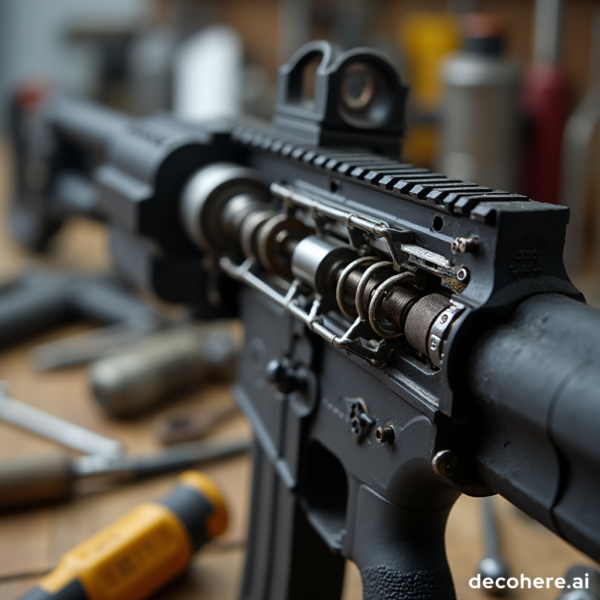Essential Welding Equipment Used in Automotive Shops: Expert Guidance and Practical Insights
Introduction
Automotive shops rely heavily on specialized welding equipment for tasks ranging from body panel repair to fabrication of custom parts and chassis work. The choice of welding equipment directly impacts the quality, strength, and safety of repairs and modifications. This article explores the main types of welding machines and cutting tools used in automotive shops, their specific applications, and actionable guidance on choosing and accessing these essential resources.
Key Types of Welding Equipment in Automotive Shops
Automotive welding encompasses several different processes, each with distinct advantages tailored to specific types of work. The most widely used welding machines include:
MIG Welders (Gas Metal Arc Welding, GMAW)
MIG welders are the most common welding equipment for automotive bodywork and fabrication. These machines use a spool of wire fed continuously through a welding gun, while a shielding gas (usually argon or a mix) prevents contamination of the weld. MIG welding is prized for its speed, ease of use, and ability to weld thin sheet metal, making it ideal for body panels, frames, and exhaust systems [5] . Most automotive work uses low-output MIG welders with 0.023-0.035-inch solid wire in a short-circuit transfer mode. Even compact, entry-level MIG welders can handle most auto body tasks effectively.
For vehicles designed with more aluminum components, a MIG welder with a ‘push-pull’ or ‘spool gun’ capability is recommended for consistent feeding of softer, thinner wires [5] .

Source: mostaql.com
TIG Welders (Gas Tungsten Arc Welding, GTAW)
TIG welders offer higher precision and control, producing cleaner, aesthetically pleasing welds. These are especially useful for intricate tasks, such as joining thin aluminum or stainless steel components, and for custom fabrication projects where weld appearance and strength are paramount [3] . TIG welding is slower than MIG and requires more skill, but it is preferred when working on critical or highly visible joints.
Modern TIG welders can be set to AC mode for aluminum or DC for steel and stainless steel, expanding their versatility in automotive applications [3] .
Resistance Spot Welders
Spot welding , a form of resistance welding, is essential in automotive manufacturing and repair for joining sheet metal panels. It works by passing an electric current through overlapping metal sheets, fusing them at specific spots. Spot welders come in both handheld and fixed configurations, allowing flexibility for both production lines and repair shops [4] . This method is fast and efficient, particularly for joining large sections of body panels and frames.
Many collision repair shops use portable spot welders to replicate factory welds when replacing structural panels or restoring crash-damaged vehicles.
Flux-Cored Arc Welders (FCAW)
Flux-cored arc welders use a tubular wire filled with flux, eliminating the need for an external shielding gas. FCAW equipment is valued for its portability and ability to weld on dirty or rusty surfaces, making it practical for outdoor, heavy equipment, and field repairs [2] . However, FCAW produces more smoke and is less precise than MIG or TIG, so it is less common for fine bodywork but useful for frame repairs and situations where surface cleanliness cannot be guaranteed.
Plasma Cutters
Plasma cutters are vital for cutting out damaged sections of steel or aluminum body panels. These tools use an electric arc and compressed air to cut through metal cleanly and with minimal distortion. Plasma cutters are especially helpful in fabrication and repair, enabling precise removal of material and preparation for welding [1] .
Advanced and Specialized Equipment
For high-volume manufacturing and specialized repairs, additional equipment may be found in automotive shops:
- Laser Welders: Used for high-precision tasks and advanced manufacturing. Handheld fiber laser systems are becoming accessible for custom fabrication and high-quality repairs [3] .
- Stick Welders (SMAW): Primarily for heavy-duty or structural repairs, especially when working on rusted or painted frames. Less common in routine bodywork due to less precision [1] .
How to Select and Access Automotive Welding Equipment
Choosing the right welding equipment depends on the type of work performed in your shop. Here’s a step-by-step guide for accessing and implementing the most suitable tools:
- Assess Your Needs: Identify the metals and thicknesses you frequently work with. For most auto body repair, a MIG welder is sufficient. For custom work or aluminum welding, consider a MIG with spool gun capability or a TIG welder.
- Evaluate Shop Volume and Budget: High-volume shops may justify investment in advanced spot welders or even laser systems, while small or mobile operations may prioritize versatile, portable MIG or FCAW equipment.
- Consult Manufacturers and Distributors: Major brands like Miller, Lincoln Electric, ESAB, and Fronius offer dedicated automotive welders. To compare features and specifications, visit their official websites or authorized distributors. If you’re unsure where to begin, you can contact local welding supply stores for hands-on demonstrations and expert advice.
- Consider Training: Proper training is critical for safety and quality. Many community colleges, technical schools, or equipment suppliers offer courses in MIG, TIG, and spot welding. Search for “automotive welding courses near me” or consult your regional workforce development agency for recommendations.
- Explore Equipment Rental: For occasional or specialized tasks, renting welding equipment is an economical option. Reputable rental companies like Red-D-Arc and United Rentals provide short-term access to a wide range of welding and cutting tools. Check their official websites or contact local branches for details.
- Maintenance and Safety: Always follow manufacturer guidelines for maintenance and calibration. Ensure your shop is equipped with appropriate ventilation, fire safety gear, and personal protective equipment (PPE) such as welding helmets, gloves, and jackets. Consult the Occupational Safety and Health Administration (OSHA) for current workplace safety requirements.
Real-World Examples and Case Studies
Consider these practical scenarios illustrating how welding equipment is used in automotive shops:
- Body Panel Repair: A collision repair technician uses a 140-amp MIG welder to replace a corroded door panel, opting for 0.023-inch solid wire for minimal heat distortion. After welding, the seam is sanded smooth for painting.
- Exhaust System Fabrication: A custom exhaust shop employs a TIG welder to join stainless steel tubing, ensuring neat, strong welds on visible components.
- Frame Reinforcement: A restoration specialist uses a stick welder for heavy-duty frame repairs on a vintage truck, prioritizing penetration and strength over appearance.
- Aluminum Panel Installation: For a late-model vehicle with aluminum doors, a technician uses a MIG welder with a spool gun to ensure consistent wire feeding and a sound weld.
- Plasma Cutting for Rust Removal: Before welding a patch panel, a technician uses a plasma cutter to excise rusted sections of the fender with minimal heat impact on surrounding metal.
Potential Challenges and Solutions
Automotive welding presents unique challenges, including thin sheet metals prone to warping, mixed materials (steel and aluminum), and the need for both structural integrity and cosmetic appeal. Here’s how to address common obstacles:

Source: pitman-training.com
- Thin Metal Warping: Use lower amperage settings, short welds, and allow cooling between passes. Practice on scrap material to perfect technique.
- Aluminum Welding: Invest in a compatible MIG welder with spool gun or AC TIG capability. Clean oxide layers thoroughly before welding.
- Limited Budget: Start with a versatile, entry-level MIG welder. Expand your toolkit as the shop grows or as new needs arise.
- Safety Concerns: Ensure proper PPE, ventilation, and adherence to OSHA guidelines. Regularly inspect equipment for wear or damage.
Alternative Approaches and Additional Resources
While MIG, TIG, and spot welding are the backbone of automotive shops, other methods like laser welding are gaining traction for specialty or high-volume applications. For advanced manufacturing, robotic welding cells and automated laser systems are used by major automakers but are generally not cost-effective for small independent shops [3] .
If you are seeking welding services rather than purchasing equipment, search for “automotive welding shops near me” or consult your local chamber of commerce or trade association for reputable providers. For training and certification, the American Welding Society (AWS) is a recognized authority-visit their official website or search “AWS automotive welding certification” for more information.
Summary and Key Takeaways
Automotive shops use a variety of welding equipment, with MIG welders dominating day-to-day body and frame repairs, TIG welders excelling in precision and custom work, and spot welders providing fast, factory-style panel joining. Plasma cutters enhance efficiency in removing damaged sections. Selection depends on the specific job, shop volume, and budget. Training, safety, and regular maintenance are crucial for effective and safe operation. Explore rental options, consult local suppliers, and seek accredited training to ensure your shop is equipped for success.
References
- [1] YesWelder (2024). Types of Welding Equipment: Exploring the Key Types.
- [2] Car-O-Liner (2024). Types of Welding Machines: The Ultimate Guide.
- [3] Westermans (2024). Welding In The Automotive Industry: Equipment, Processes & Techniques.
- [4] VPIC Group. Which Type of Welding Is Used in the Automobile Manufacturing Industry?
- [5] Red-D-Arc (2022). The Welding Equipment Used in Automotive Shops.



